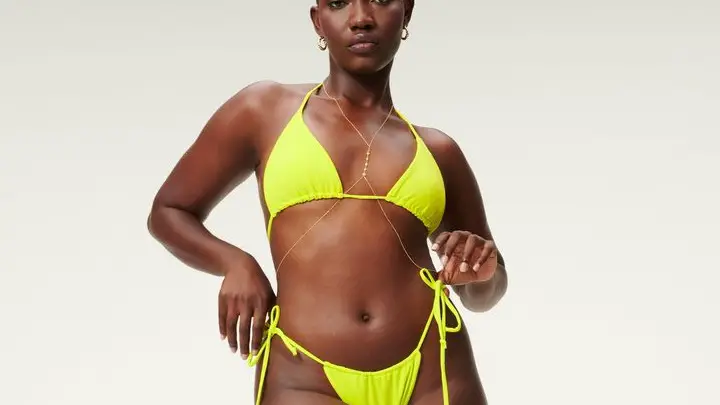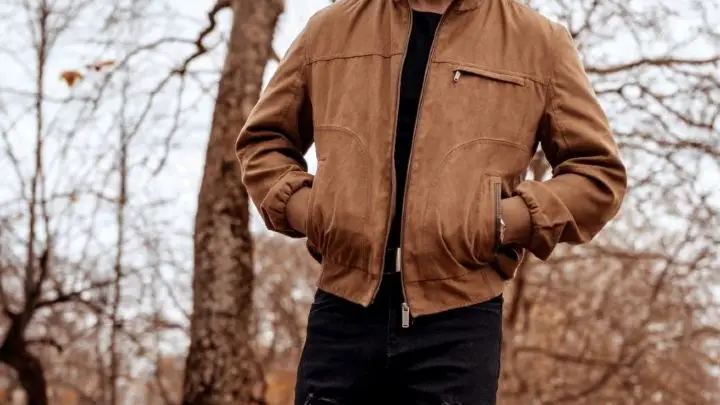Rice water hair rinse has made quite the wave in recent times. Rice water is chock full of nutrients like protein (amino acids) and starch which are good for low and high porosity hair. The preparation process may be time-consuming for a DIY but eventually, it’s worth every stress.
Hair needs protein and moisture for healthy and steady growth. However, when protein and moisture levels are not balanced, your hair begins to lose weight, becomes limp, and eventually breaks. This imbalance determines hair porosity; that is, low or high porosity hair.
If rice water was prescribed for your hair porosity issues, you picked the right article. Continue reading to see answers to your questions.
Is Rice Water Good for Low Porosity Hair?
Low porosity hair is characterized by closed cuticles that make it difficult for your hair to retain and release moisture. The closed cuticles have little gaps in between, which also make it difficult for the hair to absorb products. As a result, the products sit on your hair and have no effect.
Because of this, the hair appears limp, dull, and breaks easily. Using rice water on low porosity hair can strengthen the hair again. The protein coats the surface of your hair and increases volume and strength.
However, low porosity hair is protein-sensitive. If you go overboard with rice water, the protein, which still has a difficult time penetrating your hair, will form build-up on the hair shaft. Consequently, your hair becomes drier, brittle, and may eventually break.
Is Rice Water Good for High Porosity Hair?
Rice water is highly beneficial for every hair type. High porosity hair is protein-thirsty and rice water contains just enough protein to balance its low protein levels. This hair type is highly porous and takes in too much moisture than it should.
The open pores also make moisture escape rapidly. The protein molecules fill up the pores and seal them. As a result, the hair is strengthened, retains moisture better, and looks healthier.
Likewise, the protein deposits form a coat that protects your hair from environmental pollutants that can damage hair. The hair stays fortified with nutrients and is in a better place for growth.
How to Make Rice Water for Hair
There are three different ways to make rice water. Follow any of these steps to make rice water for your hair:
Materials: 1 cup of rice, 4 cups of water, sieve, bowls for rinsing and soaking, spray bottle, a glass jar with lid
1. The soaking method
- Rinse rice with clean, cold water and strain out the water
- Then, soak the clean rice in one of the bowls for about 30 minutes or an hour at room temperature
- Afterward, strain out the milky water into a clean bowl
- Turn your rice water into the spray bottle and refrigerate
2. The fermenting method
- The fermenting method follows the same steps as the soaking method except that it takes a longer period of soaking
- After rinsing your rice with clean water, pour it into the glass jar, add water and close it firmly
- Thereafter, leave it to sit for a day at room temperature
- The next day, strain out the milky water and you can add essential oils for fragrance
- Then, turn the rice water into the spray bottle and refrigerate
3. The boiling method
- Pour the already rinsed rice into a pot with water and boil
- When you see the starch turn the water milky, bring down the pot
- Strain the water and leave it to cool
- When the rice water is cool enough, turn it into the spray bottle
How to Use Rice Water for Hair
- Wash your hair like you normally would with a sulfate-free shampoo and rinse out the lather
- Use a clean towel to wring out excess water
- Take your bottle of rice water and shake it well to mix
- Spray the water generously and use your fingers to massage it into your hair
- Thereafter, cover your hair with a shower cap to allow the nutrients to absorb into your hair
- After 15-20 minutes, rinse out rice water with cold water
- You can either allow your hair to air dry or use a blow dryer
- Additionally, you can add rice water to your shampoo or use it as a pre-poo treatment for awesome results
How Do You Know You Have Low Porosity Hair?
Low porosity hair repels water. The water beads on the surface of your hair shaft and sit there. As a result, it takes a long time to get your hair wet.
Surprisingly, it takes an equally long time to get your hair dry. This is because, once moisture manages to get in, the closed cuticles make it difficult for moisture to leave.
The same applies to haircare products. The closed cuticles make it difficult for them to penetrate your hair shaft and deliver the ingredients. Products like conditioners need heat to penetrate your hair. As a result of this, products sit on the surface of your hair and create build-up.
Low porosity hair is always greasy and gets dirty very often. The grease weighs down the hair, flattens strands, and reduces hair volume. Also, people with low porosity hair have recurring cases of scalp dandruff.
SEE: Routine Tips on How to Grow Your Low Porosity Hair
How Do You Know You Have High Porosity Hair?
Unlike low porosity hair, high porosity hair does not have product build-up or a greasy feeling. But this does not say it is not without its troubles. High porosity hair is hair damaged by frequent use of chemical treatments and heat styling tools.
The hair shaft has holes that make it absorb and lose moisture too quickly. Consequently, the hair curls up faster and tangles easily.
People with high porosity hair are very familiar with knots and frizz. This makes the hair very prone to breakage. High porosity hair looks very dry because it cannot retain moisture. This is one of the reasons why it lacks shine.
SEE: Hair Porosity Test: Simple Ways to Identify Your Porosity Level
How Often Should You Use Rice Water for Low Porosity Hair?
People with low porosity hair should go easy with rice water. This hair type is protein-sensitive and very prone to protein overload. The best way to use rice water on low porosity hair is to start gradually. Make sure your hair can tolerate it before you go all the way in.
Start with using rice water on your hair once every two months and build up the frequency to once every month. Also, make sure you don’t leave the water in your hair for too long. Using rice water as a leave-in conditioner can ruin your hair.
How Often Should You Use Rice Water for High Porosity Hair?
If you have high porosity hair, you should use rice water as a protein treatment or hair rinse once or twice a week. Unlike low porosity hair, there is a much lower risk of getting a protein overload with frequent use of rice water.
This will increase the capacity of your hair to hold down moisture and stay hydrated. This improves hair dryness and makes your strands less brittle.
SEE: Proven Growth Tips For High Porosity Hair
What Does Rice Water Do for Low Porosity Hair?
- Uses vitamins B and E to fortify your scalp and encourage hair growth
- The protein it delivers strengthens the hair shaft and replaces dullness with a shiny appearance
- Rice water also aids in detangling low porosity hair
- Inositol, a carbohydrate present in rice water, enhances hair elasticity and improves the strength of damaged hair
- Rice water helps dissolve product build-up and gets it off the hair
- Rice water fills in cuticle gaps and makes them smoother
SEE: Best Conditioner Products to Boost Your Hair Growth
What Does Rice Water Do for High Porosity Hair?
- Rice water increases hair manageability
- It increases the moisture retention capacity of your hair
- Using rice water on your hair increases hair strength and vibrancy
- Helps combat hair dryness thereby reducing the occurrence of dandruff
- Increases hair elasticity and enhances curls’ bounce
- The protective protein coat remains on the hair shaft to protect it from damages until the next wash day
FAQs
Will rice water cause your hair to dry out?
Rice water may leave your hair drier if not used properly or in excess. It is highly rich in protein and protein overload on your hair can cause it to dry out. To avoid being counterproductive with rice water, know your hair porosity and how much protein it can take.
Does dry hair mean low porosity hair?
Extremely dry hair is a major sign of low porosity hair. If your hair doesn’t absorb water or products well, it’s a sign of low porosity. This type of hair doesn’t retain moisture and as a result, there is always build-up on the hair.
How often should you wash low porosity hair?
You shouldn’t wash low porosity hair more than once a week. While it’s easy to think that you can increase moisture absorption rate or alleviate dryness with constant washing, it doesn’t work that way. Too frequent washing can make your hair drier.
In addition, when you wash your low porosity hair, rinse with cold water to seal the cuticles and retain moisture.
How often should you wash high porosity hair?
It’s okay to wash high porosity hair once a week or bi-weekly to keep it clean and moisturized. Unlike low porosity hair, which always has product build-up, you don’t necessarily have to wash it every week.
Conclusion
Rice is just as beneficial to the hair as it is to the body. What it does for the hair cannot be watered down. Low and high porosity hair types are plagued with protein imbalance which affects the overall health and appearance of the hair.
Rice water hair rinse helps to address this concern without weighing down your hair with products. However, while it’s natural, there are limits to how frequently you use rice water, especially for low porosity hair. If properly used, hair porosity concerns can become a matter of the past.
So, before you flush your next bowl of rice water, think about your hair.
Thanks for reading.
Check Africana Fashion to read more related articles concerning your hair needs.







